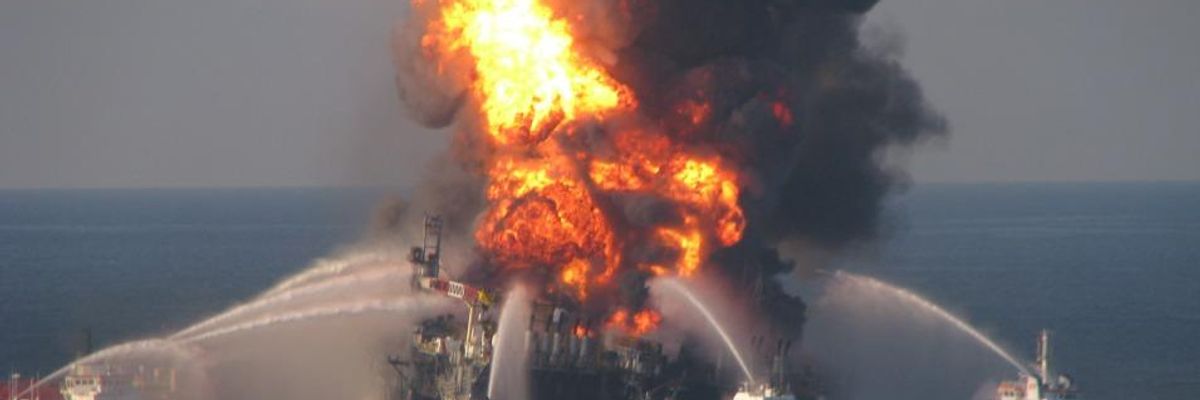When pitching a proposal to drill for oil in the Great Australian Bight of the southern coast of Australia in 2016, according to newly revealed documents, oil giant BP attempted to allay regulators' concerns by claiming that any future oil spill would actually be a 'welcome boost' to the local economy.
In documents Climate Home News obtained through freedom of information laws, BP told the National Offshore Petroleum Safety and Environmental Management Authority (NOPSEMA) that any cleanup efforts undertaken after a potential oil spill would be beneficial to coastal cities.
"In most instances, the increased activity associated with cleanup operations will be a welcome boost to local economies," the company wrote.
Oil spills, it claimed, were "socially acceptable" with "no unresolved stakeholder concerns."
NOPSEMA vehemently disagreed with BP's assessment, saying the company had not considered the potential impact of drilling's sound pollution on whales and dolphins as well as the danger a potential spill would hold for those species and others. Offshore drilling would also have negative effects on the area's tourism industry, the regulators said.
The exchange came six years after BP's destructive Deepwater Horizon disaster in the Gulf of Mexico, which sent an estimated 200 million gallons of oil gushing into the marine ecosystem and unleashed untold damage on coastal communities and wildlife throughout the region.
In the Climate Home News report on BP's lies regarding the effects of oil spills, the company's spokesperson said the correspondence with NOPSEMA didn't "represent the final views of BP or the regulator" and noted that BP hadn't gone forward with the proposal to drill in the Bight.
"There is no way to drill for oil safely in the Bight." --Nathaniel Pelle, Greenpeace
The Norwegian company Statoil took over BP's exploration plans in 2017, with drilling expected to begin next year--prompting new outcry from green campaigners.
"Statoil must meet the same standards required of BP: its shareholders, not least the Norwegian government, need to know the company cannot reasonably meet the cost of keeping Australia's southern ocean and coastlines safe from an oil spill which could take months to cap. Statoil should drop its plans," Australian Green Party politician Bob Brown told Climate Home News.
"We will only undertake drilling activity if we can do it safely," a spokesperson for the company told the outlet. But critics pointed to previous oil-drilling disasters, saying safe offshore drilling would not be possible.
"There is no way to drill for oil safely in the Bight," Nathaniel Pelle, a senior campaigner at Greenpeace, told the Sydney Morning Herald.




